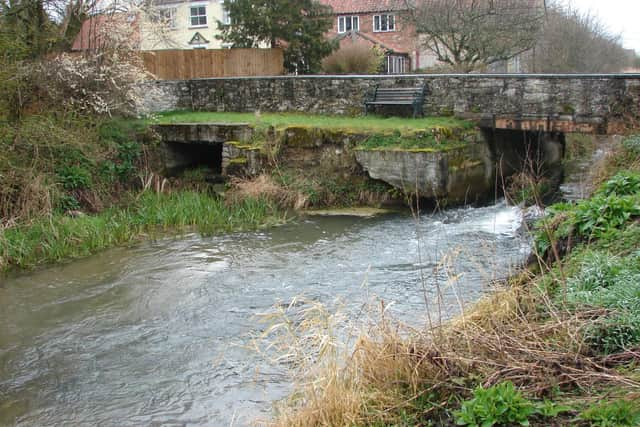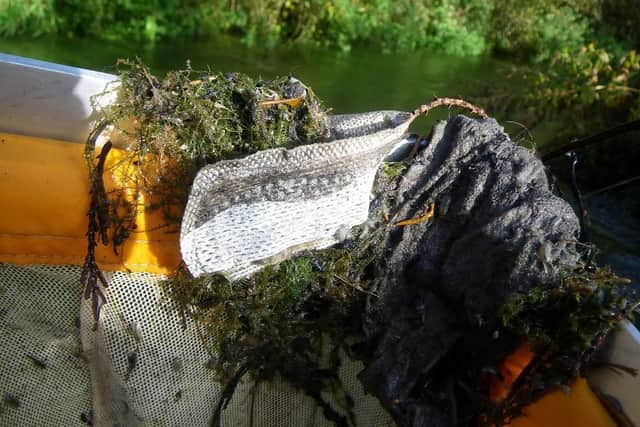Anglers threaten to take Environment Agency to the High Court over sewage pollution in 'dead' Yorkshire river once famous for its fishing
The permits were issued to Yorkshire Water and two fish farms - one run by the EA itself - along the spring-fed Costa Beck, which is home to populations of trout and grayling - but the Pickering Fishery Association allege that they were not properly reviewed.
Not-for-profit organisation Fish Legal's lawyers are representing the anglers and are calling for a judicial review of the Environment Agency's management of the river, arguing that their failures are unlawful.
Advertisement
Hide AdAdvertisement
Hide AdThe Environment Agency has until March 8 to respond and begin negotiations over resolution before Fish Legal's application goes to the High Court.


Fish Legal claim that in 2020, untreated storm sewage from Yorkshire Water’s Pickering works was discharged into the beck on 108 separate occasions for a total of over 260 hours. Silt from the two fish farms near the spring source had also smothered the riverbed and prevented trout and grayling from reproducing. Once described as Yorkshire's finest grayling river, Costa Beck was classed as ‘poor’ for fish stocks by the Environment Agency back in 2009.
The Costa Beck's Scandinavian name, ironically, means 'river full of fish'. It was used for ships transporting mill flour as early as 1200, and its waters were always noted for their crystal-clear clarity, which attracted fly fishermen .
In the late 19th century, leading angling writers considered it be be one of the country's best grayling streams and catches of 20lb specimens were regularly recorded.


Advertisement
Hide AdAdvertisement
Hide AdAccording to the Pickering Fishery Association, which holds the rights: "The Costa maintained its formidable reputation until relatively recently. Unfortunately it has declined severely in recent years."
Fishing was even banned there for several years, and in 2017 an angling blogger returned to the spot and caught nothing, describing the beck as 'dead'.
Solicitor Andrew Kelton said: “Costa Beck is one example of many from around the country where there has not been the will to address long-term pollution, which typically degrades the whole ecology of the water body in complex ways. At Costa Beck the combined causes of degradation have been worked out, but the authorities refuse to grasp the nettle and take action. After many years of unsuccessful negotiation, legal action appears to be the only recourse.”
Pickering Fishery Association secretary Martin Smith added: “It is with some sadness that we feel we have now reached the point where legal action may be necessary. Our club has been working tirelessly for more than 20 years on how to restore this once wonderful fishery.
Advertisement
Hide AdAdvertisement
Hide Ad"We have commissioned scientific research, involved the Angling Trust and Fish Legal, kept prodding the Environment Agency to take action, and talked with alleged polluters. Sadly, despite working closely with many good officers of the EA their processes seem to be incapable of rectifying the issues. We realise that legal action alone will not solve the problems, which have to be addressed on the ground and with real people. We will continue to talk (and to listen) but we are determined not to let this river be consigned to history.”
The Environment Agency declined to comment.
What is a judicial review?
Judicial review is the legal process by which citizens are able to hold government to account for its actions, by issuing a claim in the High Court which will then subject the action (or inaction) to rigorous scrutiny by a judge as to its legality, and then to sanctioning as appropriate if it is found to be unlawful.
The basic procedure is for the claimant first to send a pre-action letter, in response to which the government/agency either agrees to do what the claimant requests, or contests the claimant’s argument; then (if there is no agreement) to issue the claim in the High Court; then a permission stage at which a judge decides whether the claim is sufficiently arguable to take further; and finally a substantive hearing into both sides’ full arguments and evidence, followed by the judge’s ruling.
Comment Guidelines
National World encourages reader discussion on our stories. User feedback, insights and back-and-forth exchanges add a rich layer of context to reporting. Please review our Community Guidelines before commenting.
